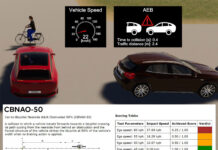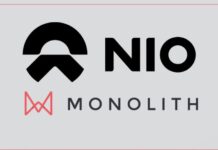Renault Group is pursuing a pragmatic approach to autonomous vehicle technology, aiming to differentiate between individual vehicles and public transportation. While focusing on top-level driving assistance for individual vehicles, Renault Group is actively developing an autonomous miniBus platform for public transportation. Collaborating with partners like WeRide, they aim to deploy Level 4 autonomous vehicles for public transport, capable of managing driving situations within predefined domains with remote supervision but without an onboard operator. The focus on public transportation aligns with the increasing need for sustainable mobility solutions, particularly in urban areas facing emission restrictions. This strategic move highlights Renault Group’s commitment to shared innovation and accessible autonomous mobility for a broader audience.
The forthcoming autonomous miniBuses, characterized by their flexibility, will operate round the clock with utmost safety. They present a zero-emission alternative or a cost-efficient complement to existing transportation solutions like trains, trams, and buses, significantly reducing CO2 emissions per kilometer per passenger. The additional expenses incurred in robotization and automation may be compensated by eliminating the need for onboard operators. Operating a fleet of these vehicles will necessitate a straightforward remote supervision system.
WeRide has established itself as a leading authority in autonomous vehicles, boasting over 700 autonomous vehicles, including 300 miniBuses, which have collectively traveled over 28 million kilometers across Asia, the Middle East, and North America. Their imminent expansion into Europe through collaboration with Renault Group further solidifies their global presence in the autonomous vehicle industry.
“Renault Group is moving forward to implement its autonomous vehicle strategy. As a result, thanks to our experiments and our partners, the best in their fields, we will be in a position, well before the end of this decade, to propose a highly relevant range of autonomous, low-carbon miniBuses to meet the growing needs of the regions.”







